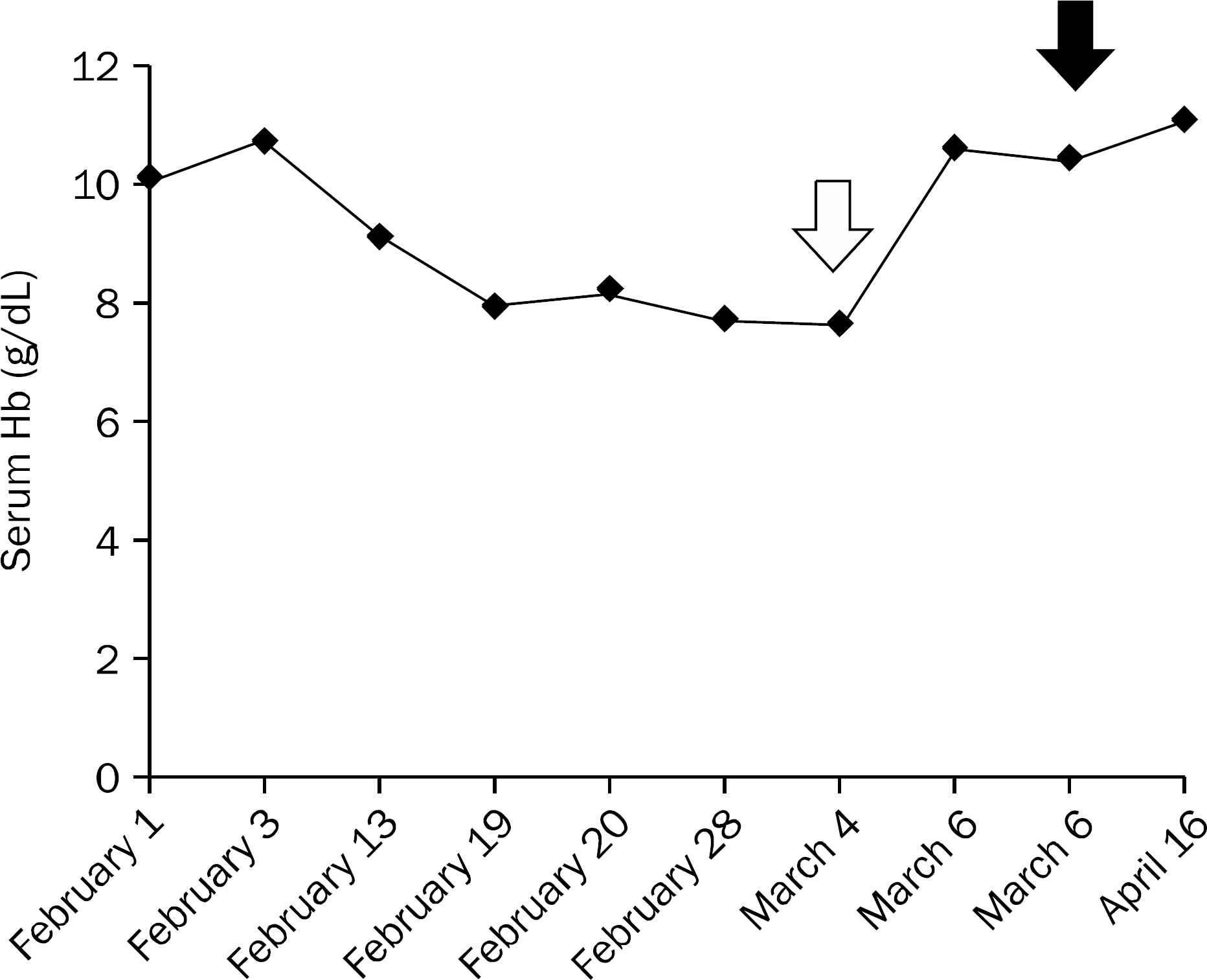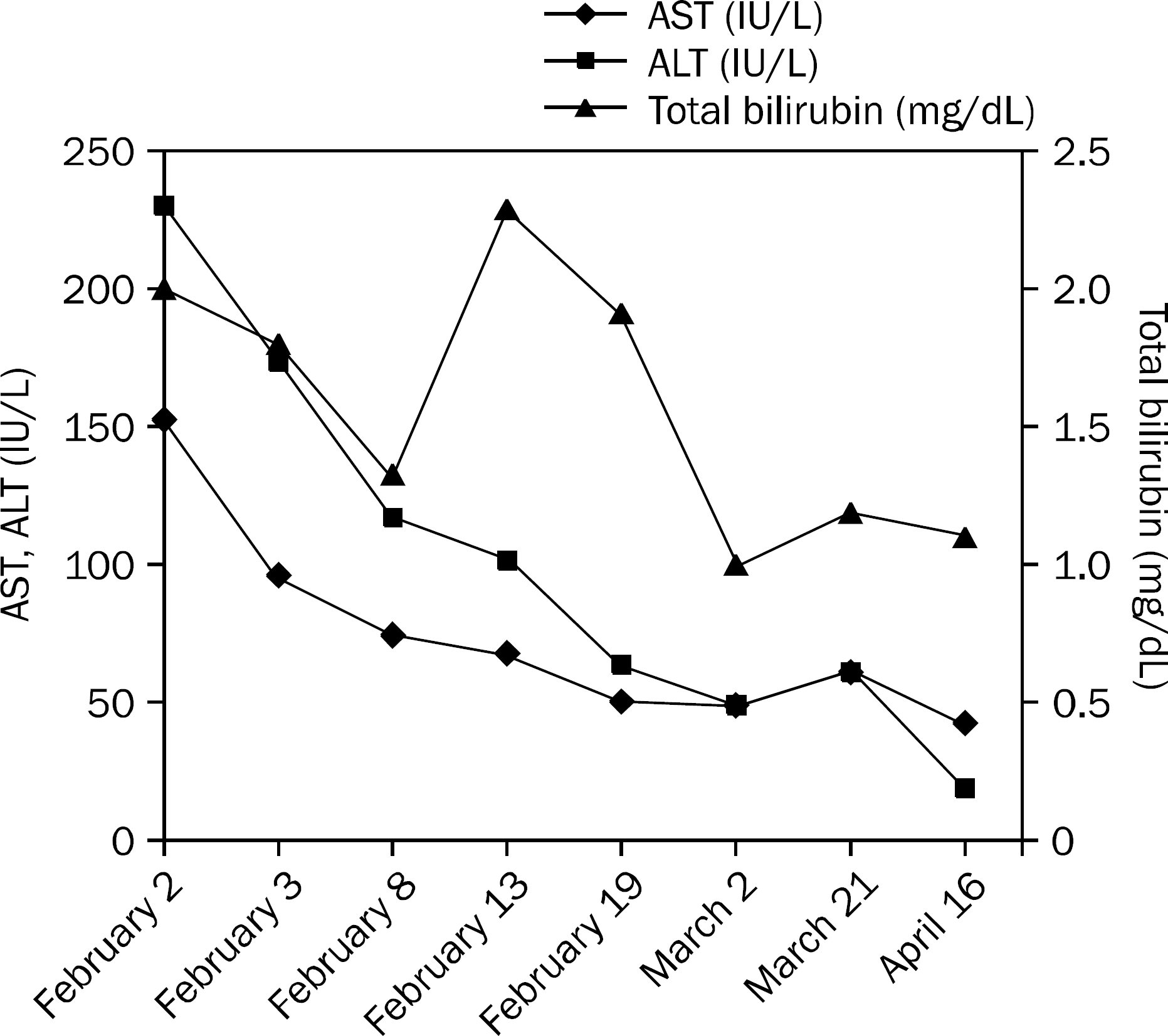Abstract
A 61-year-old male patient was admitted because of unexplained abdominal pain and anemia. His past medical history was unremarkable except for having taken herbal medicine to treat facial palsy two months ago. The result of health examination performed about a month ago showed increased serum aspartate and alanine aminotransferase level, and he was diagnosed with toxic hepatitis by herbal medicine. When the patient presented to the outpatient department three weeks ago, follow-up liver function test results showed improvement but he complained of abdominal pain. Despite extensive blood chemistry tests and computed tomography, the cause of pain could not be found. After much deliberation, serum lead level and herbal medicines analysis was performed based on the fact that he took herbal medicine two months ago, and he could finally be diagnosed with lead poisoning. Since the serum lead level was high enough to be indicated for lead chelating therapy, conservative management was given. When a patient with toxic hepatitis due to herbal medication presents with abdominal pain, the possibility of lead poisoning should always be taken into consideration.
References
1. Lee YJ. A case study on the effect of chelation therapy with di-mercaptosuccinic acid (DMSA) for lead poisoning in an adult. Korean J Occup Environ Med. 2010; 22:69–76.

2. Fung HT, Fung CW, Kam CW. Lead poisoning after ingestion of home-made Chinese medicines. Emerg Med (Fremantle). 2003; 15:518–520.

3. Navarro VJ, Barnhart H, Bonkovsky HL, et al. Liver injury from herbals and dietary supplements in the U.S. Drug-Induced Liver Injury Network. Hepatology. 2014; 60:1399–1408.

4. Kim JY, Kim JH, Kim HW, et al. A review of lead poisoning cases reported for recent 30 years in Korea. Korean J Med. 2004; 66:617–624.
5. Park JU, Oh SW, Kim SH, Kim YH, Park RJ, Moon JD. A study on the association between blood lead levels and habitual tobacco and alcohol use in koreans with no occupational lead exposure. Korean J Occup Environ Med. 2008; 20:165–173.

6. Fowler BA, Nordberg GF, Nordberg M, Friberg L. Handbook on the toxicology of metals. London: Academic Press;2011.
7. Anderson NR, Gama R, Kapadia S. Herbal remedy poisoning presenting with acute abdomen and raised urine porphyrins. Ann Clin Biochem. 2001; 38:408–410.

9. Lord GM, Tagore R, Cook T, Gower P, Pusey CD. Nephropathy caused by Chinese herbs in the UK. Lancet. 1999; 354:481–482.

Fig. 1.
Change in serum hemoglobin level. Serum hemoglobin (Hb) level gradually declined up until transfusion was given (white arrow). The hemoglobin level at first visit after discharge (black arrow) remains similar to that after transfusion and shows slow recovery during follow-up period after discharge.





 PDF
PDF ePub
ePub Citation
Citation Print
Print



 XML Download
XML Download